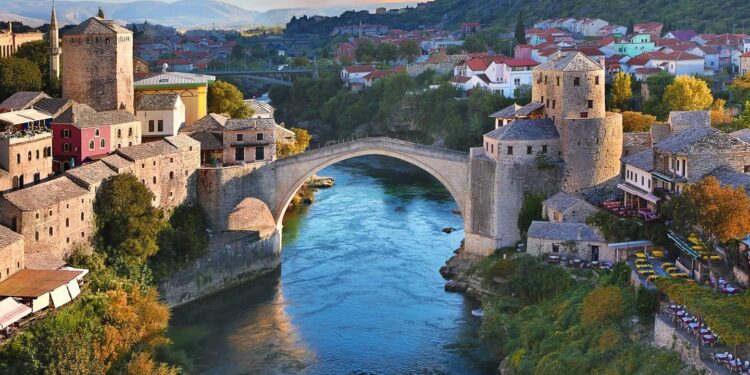Thirty years after the tragic events in Srebrenica, Bosnia’s deepest wound remains a stark reminder of the darkest chapters in recent European history. The massacre, which unfolded in July 1995, saw more than 8,000 Bosniak men and boys brutally killed, leaving a scar not only on Bosnia and Herzegovina but on the conscience of the international community. As the world marks three decades since the genocide, reflections on the failures that allowed such atrocities to occur continue to provoke sorrow, outrage, and a renewed call for justice. This article revisits Srebrenica’s legacy, examining its enduring impact on Bosnia and its lasting indictment of global inaction.
Srebrenica Thirty Years On The Lingering Impact on Survivors and the Global Community
Three decades after the Srebrenica massacre, the scars left on surviving families and the Bosnian society remain profoundly deep. For many survivors, the echo of loss is a relentless presence, shaping their daily lives and the collective memory of a community striving for justice and recognition. Efforts to honor the victims through memorials and international tribunals have offered some solace, but the trauma inflicted transcends the boundaries of legal proceedings. The enduring psychological impact, compounded by fractured communities and ongoing political tensions, highlights the urgent need for reconciliation and healing initiatives tailored to those who bore the brunt of this tragedy.
Globally, the massacre serves as an indelible stain on international solidarity and the protection of human rights. The failure to prevent the genocide has sparked widespread reflection on the effectiveness of peacekeeping missions and international law enforcement. Below are some of the broader consequences that continue to influence global discourse:
- Reevaluation of UN Peacekeeping: Srebrenica exposed critical weaknesses in mandate enforcement and troop engagement.
- International Criminal Law Development: Enhanced focus on prosecuting war crimes and genocide through institutions like the ICC.
- Diplomatic Relations: Strained ties in the Balkans impacting EU integration and regional stability.
- Global Awareness: Heightened sensitivity to mass atrocities influencing humanitarian interventions worldwide.
| Metric | Before 1995 | After 1995 |
|---|---|---|
| UN Peacekeeping Credibility | Moderate | Severely Undermined |
| Prosecutions of War Crimes | Limited | Expanded Greatly |
| International Aid Focus | General | Targeted Trauma Recovery |
| Regional Stability | Fragile | Continuing Challenges |
The Failure of International Intervention Lessons Learned and the Need for Renewed Accountability
The tragic events at Srebrenica laid bare the profound limitations of international intervention in conflict zones. Despite being declared a UN “safe area,” the enclave fell to Bosnian Serb forces in July 1995, highlighting a catastrophic failure of both political will and operational capacity among peacekeepers. This shortcoming was not merely a matter of intelligence gaps or military missteps, but a systemic failure rooted in indecisiveness, lack of clear mandates, and insufficient resources allocated to protect vulnerable populations. These lessons resonate decades later, urging a reevaluation of international frameworks designed to prevent such atrocities.
In the wake of this failure, renewed accountability must emerge as a central tenet of international policy. Transparent investigations, unwavering commitment to justice, and robust enforcement mechanisms are critical to restoring faith in humanitarian intervention. The table below outlines key lessons learned and actionable measures proposed to prevent repetition of Srebrenica’s horrors:
| Lesson Learned | Recommended Action |
|---|---|
| Weak mandates hinder effective protection | Establish clear, enforceable rules of engagement |
| Delayed international response costs lives | Implement faster decision-making protocols |
| Peacekeeping troops under-resourced | Ensure adequate equipment and training |
| Political interests override humanitarian needs | Prioritize civilian protection above all else |
Moving Towards Reconciliation Strategies for Healing and Preventing Future Atrocities
In the decades following the Srebrenica tragedy, healing remains an arduous journey marked by collective efforts from survivors, communities, and international bodies. Establishing truth commissions and supporting local NGOs working towards justice have become pivotal in acknowledging the past trauma. Education programs that facilitate dialogue between ethnic groups play a crucial role in dismantling prejudices and fostering empathy. Moreover, memorialization initiatives serve not only as a testament to those lost but as a solemn reminder to prevent repetition of such horrors. The commitment to transparency and recognition by governments and institutions significantly contributes to building a foundation of trust necessary for genuine reconciliation.
Preventing future atrocities requires a multifaceted approach involving early warning mechanisms, robust legal frameworks, and sustained peacebuilding efforts. The following strategies have shown promising results in Bosnia and beyond:
- Promoting inclusive governance: Ensuring minority rights and political representation diminishes marginalization.
- Strengthening judicial systems: Pursuing war crime prosecutions to deliver accountability and deterrence.
- Investing in community-based reconciliation: Facilitating grassroots dialogues to restore social cohesion.
- International cooperation: Sharing best practices and providing support to transitional justice mechanisms.
| Strategy | Primary Focus | Expected Outcome |
|---|---|---|
| Inclusive Governance | Political Representation | Reduced Ethnic Tensions |
| Judicial Strengthening | Accountability | Justice Delivered |
| Community Dialogue | Social Cohesion | Mutual Understanding |
| International Support | Capacity Building | Sustained Peacebuilding |
Closing Remarks
Three decades after the massacre at Srebrenica, the wounds left by this tragic chapter in Bosnia’s history remain painfully evident. As the international community continues to grapple with the legacy of genocide and the pursuit of justice, the memory of those lost serves as a stark reminder of the consequences of hatred and indifference. Ensuring that such atrocities never happen again is not only Bosnia’s responsibility but a solemn obligation for the world at large. The story of Srebrenica stands as both a cautionary tale and a call to action-one that demands vigilance, remembrance, and an unwavering commitment to human rights.
















